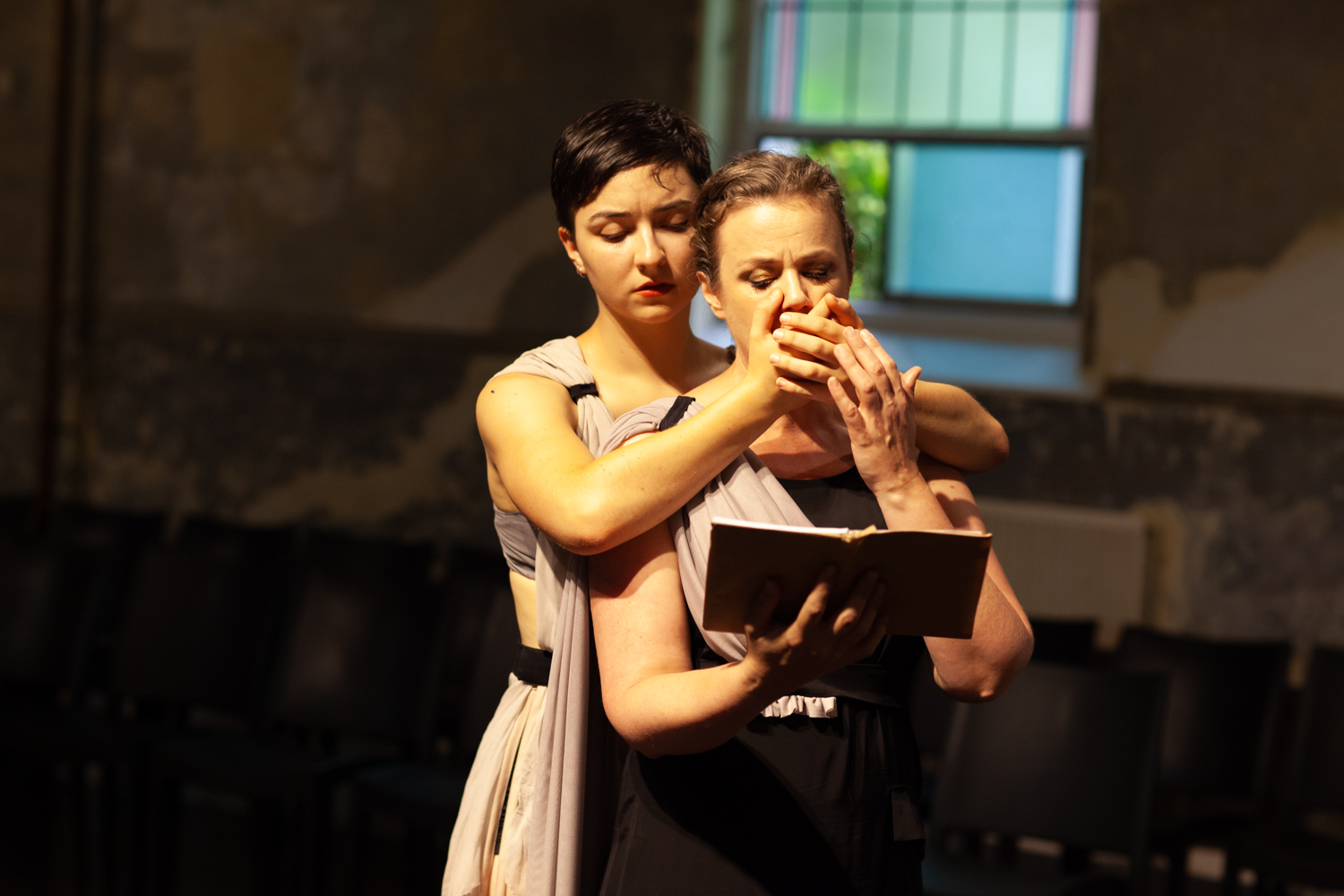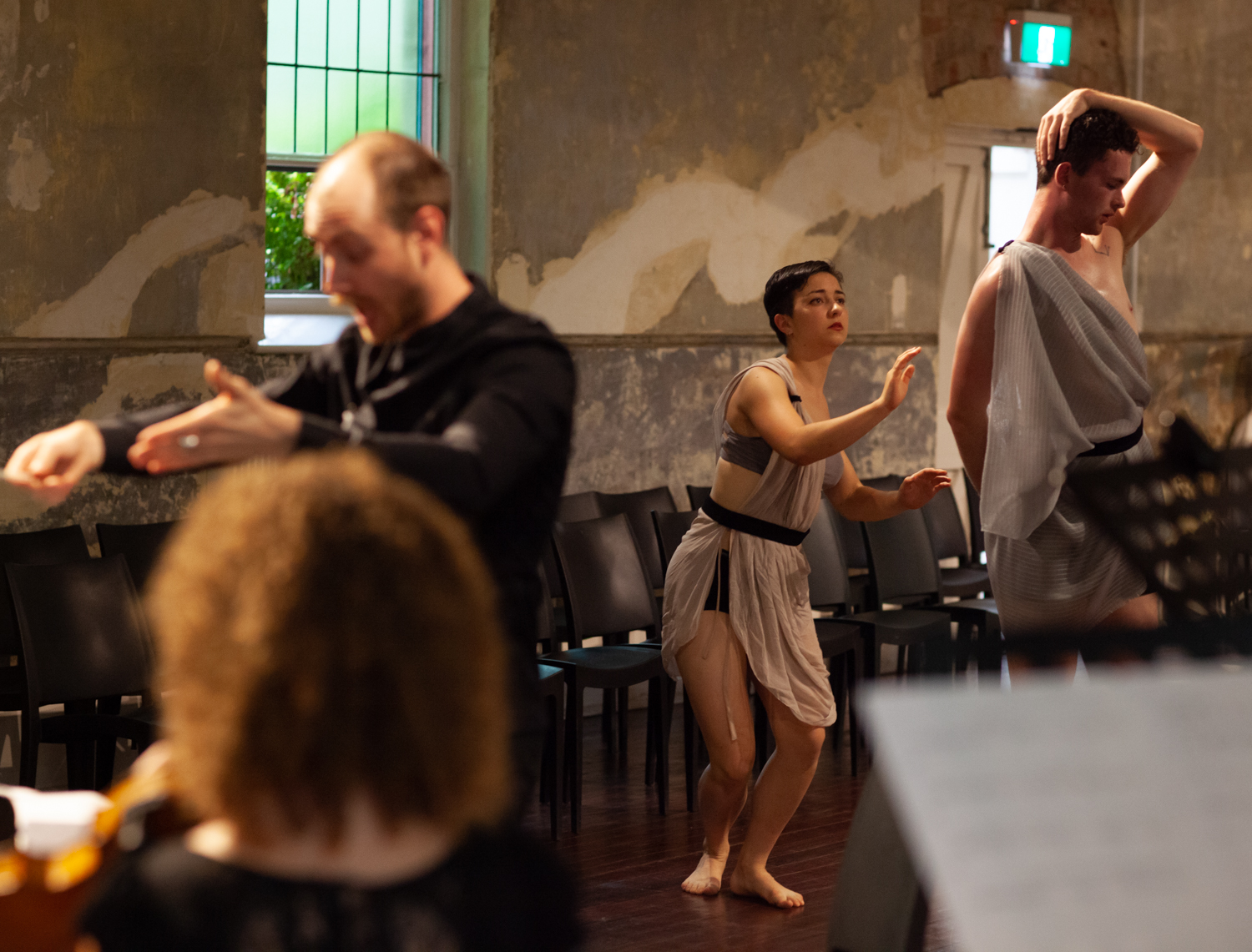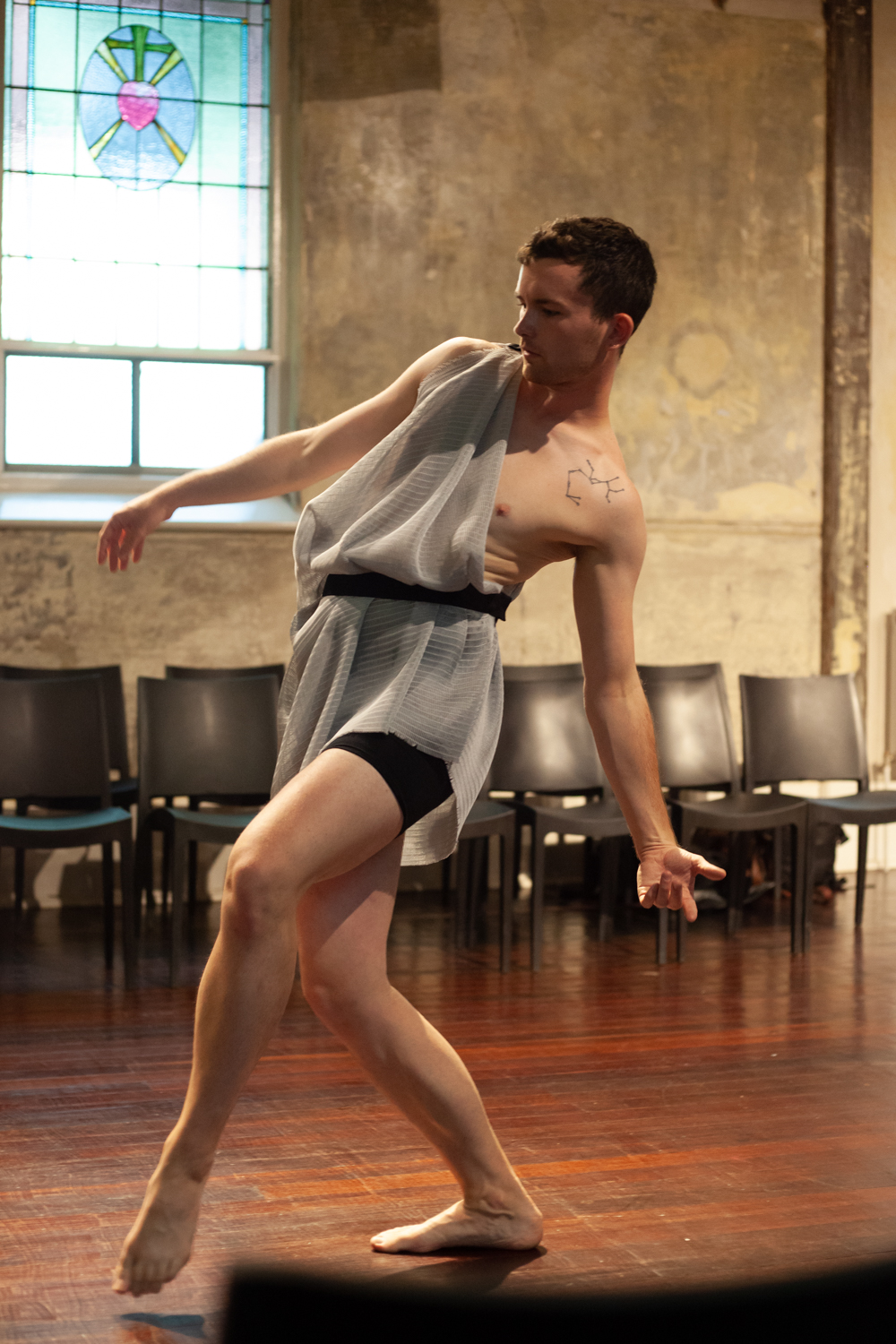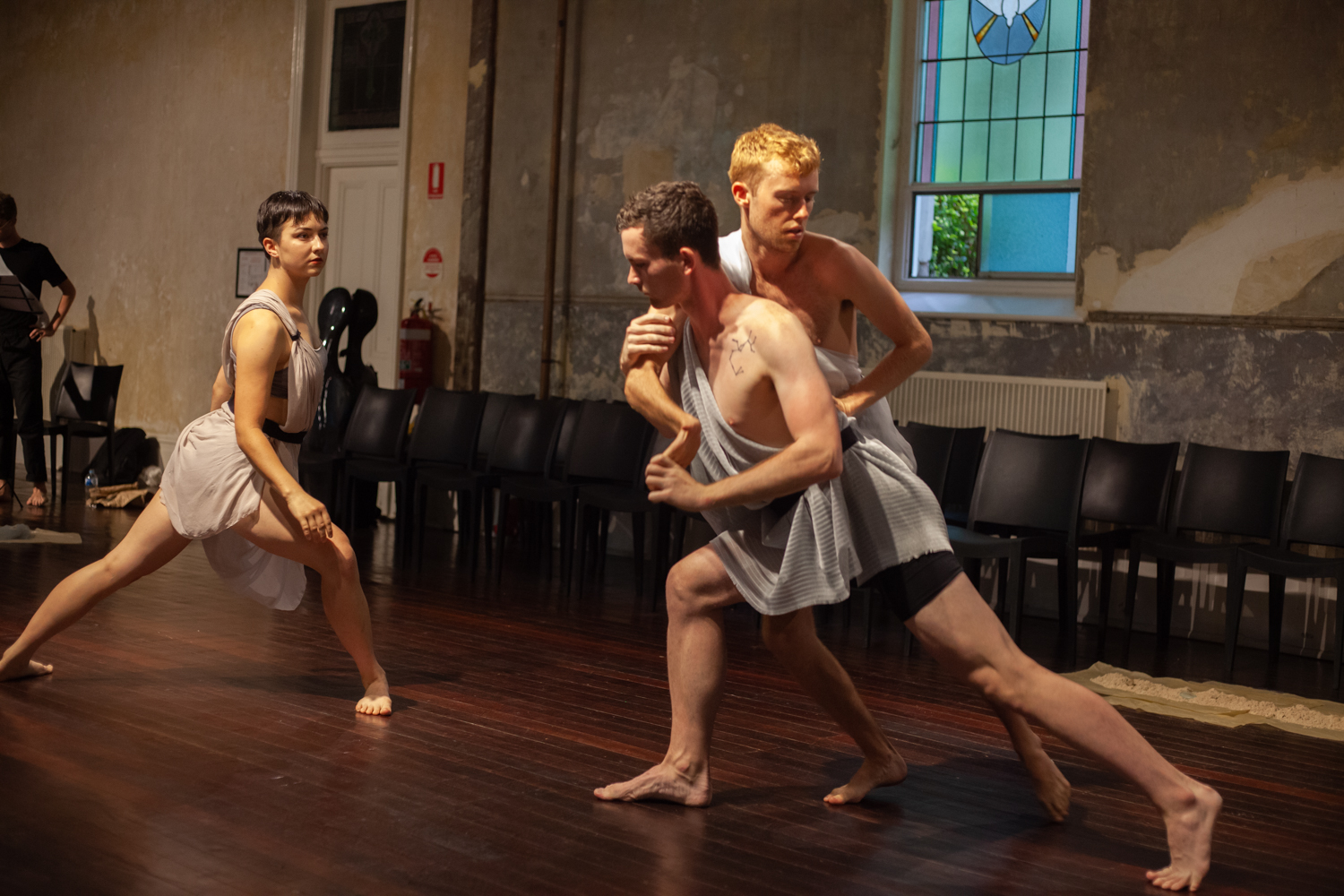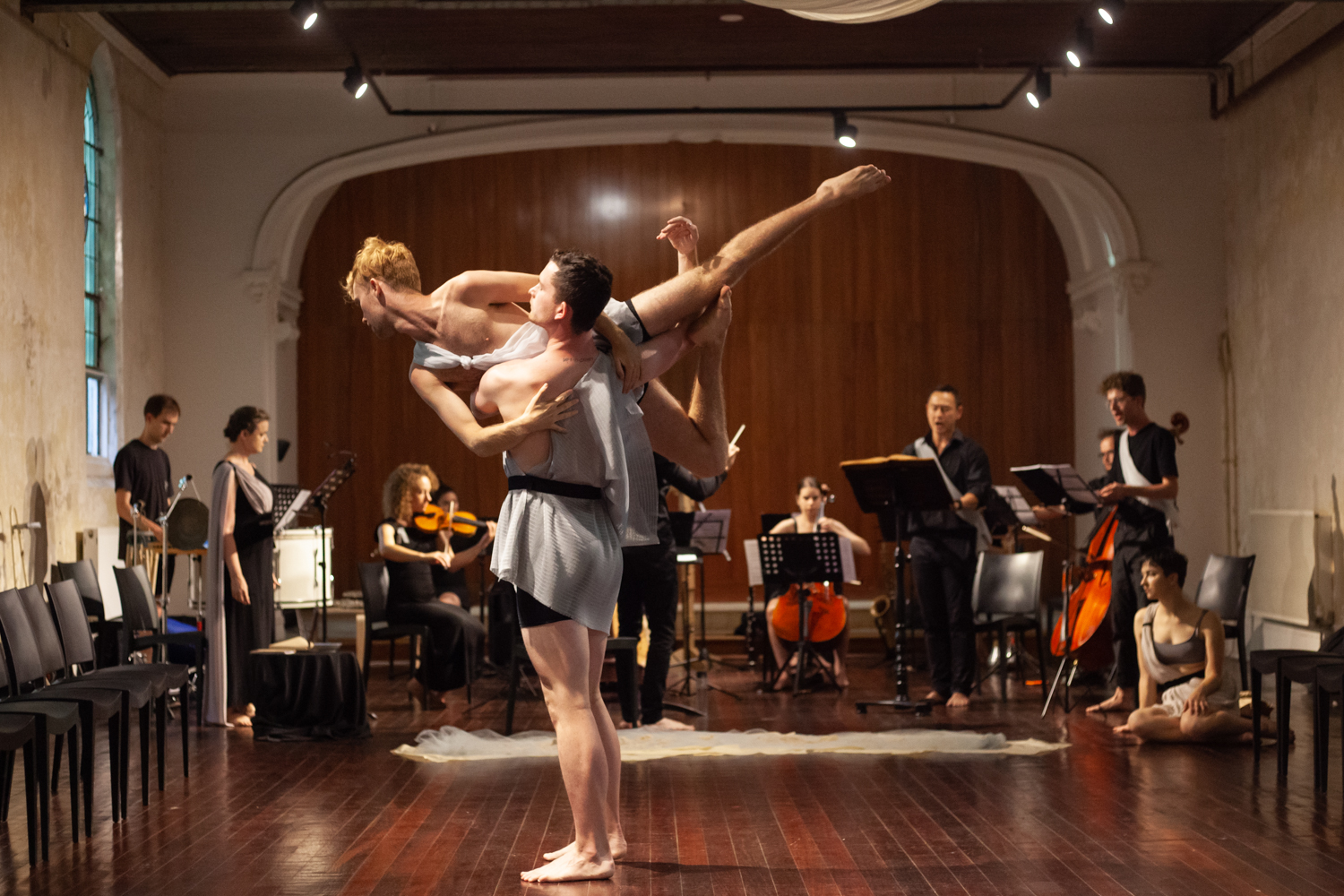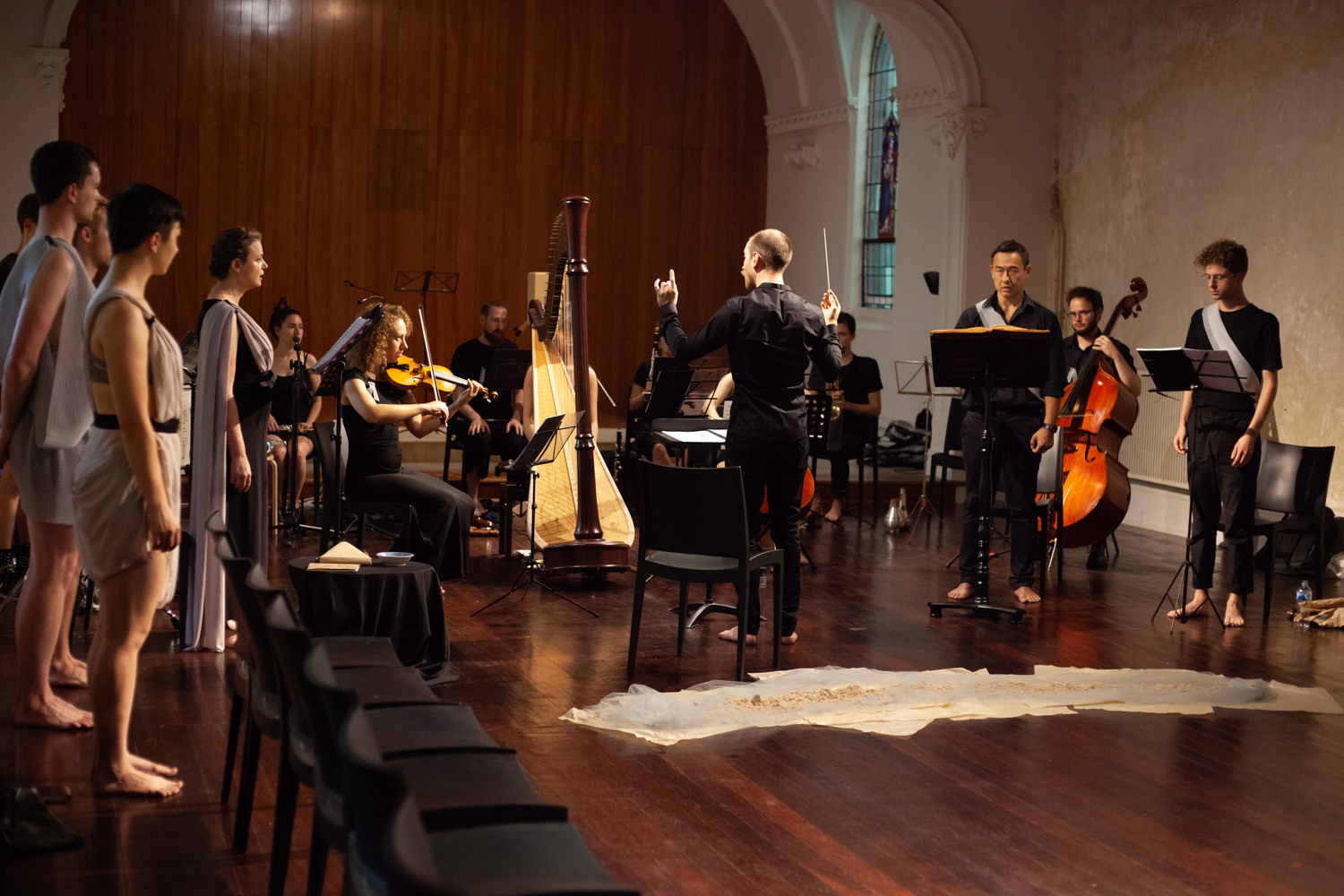orpheus
2015 - 2018
Libretto devised by the Composer from the libretto’s of Orfeo ed Euridice, Ranieri de' Calzabigi, L'Orfeo, Alessandro Striggio and words by Phemocles and William Shakespeare.
Commissioned by Forest Collective, Abbotsford Convent, Midsumma Festival, Density512 & Prismatx Ensemble
Dedicated to Mum & Dad
dur. 70”
orchestra
Fl./A.Fl./Pic./B.Fl.
Spr.Rec./Sop.Rec./Al.Rec./B.Rec./C.B.Rec. or Ob./C.A. or S.Sax./Bar.Sax.
Cl./B.Cla.
T.Sax./A.Sax.
Tbn./ optional Skbt.
Perc. (B.D. Gng. Bngs. Wood Wind Chimes)
Hp.
Vln. V.Cel. D.B.
A dance-Opera in 4 parts & epilogue
Part 1 - & Calais
Part 2 - & Eurydice
Part 3 - & the Cave
Part 4 - & the Pangaion Hills
Roles
High Voice (Tenor/Soprano) - Orpheus
Medium to High Voice (Mezzo Soprano/Baritone) - Eurydice
Lower Voice (Mezzo Soprano/Counter Tenor/Baritone) - Calaïs
synopsis
Since the Victorian era many ancient greek myths have been hijacked and altered to have any references to same-sex relationships or gender fluidity removed. Many people aren’t aware of the diversity in ancient myths that explore varying types of human sexuality and gender. In my exploration of the lesser known parts to the Orpheus myth, I was fascinated to find about his pederasty relationship with fellow argonaut Calaïs. In some sources, his love for the young man was deeper than his love for Eurydice. It provided me with a fascinating viewpoint on the love triangle at the core of the myth, and a fascinating love triangle to explore on stage.
Leading on from this relationship between these two men, I was also interested in how to give Eurydice a clear, strong voice. In many of the opera adaptations she’s very much a lesser character, at the beck and call of Orpheus. She is put through harrowing experiences and dies twice. Once at the hand of an asp or a satyr (depending on the version of the myth) and one by the folly of Orpheus.
In the text I’ve used for her reappearance, taken from the libretto of the Gluck opera, she fearfully asks Orpheus why she’s been brought back from the dead.
“What life is this now I’m about to lead?”
Captivated, I wanted to provide her character with an opportunity to speak openly and with dignity about her oppression and manipulation by fate and men.
I also want to acknowledge that as a male composer I’m following a long and tangled tradition of male composers telling female performers how to interpret female characters, and putting those characters through pain.
The work opens in the shrouding mist of the sea. The three singers commence singing an Ancient Greek hymn to the sea, adapted by myself for this performance. This melody is one of the oldest surviving pieces of notated music.
We then cut to Odysseus’ ship the Argo, which is caught in the throngs of the Sirens’ cries. Orpheus plays his lyre and saves Calaïs and his fellow shipmen, distracting the dangerous Sirens. Calaïs then sings of his love and gratitude in a duet with Orpheus.
As the scene changes, we move into a aria from Eurydice, happy and hopeful on her upcoming marriage to Orpheus. In many sources of the myth, there is no clarity around how Orpheus leaves Calaïs and meets and weds Eurydice, and so it is in this production.
Following on from this is a danced section that depicts the physical love and marriage between Eurydice and Orpheus. This dissolves into her chase, rape and eventual torture by a satyr. She sings of her pain and of the breath leaving her body.
Next, Orpheus journeys to Hades to get her back, resulting in a confrontation with the king of the underworld. Hades is depicted by the contrabass recorder and his wife Persephone, by the bass flute. Hades allows Eurydice to return to earth, with one condition: that Orpheus does not look at her on the journey back to earth. Sources vary about weather Eurydice is aware of this condition or not. Either way in a state of anxiety and fear he looks back. Eurydice’s soul is returned back to Hades.
Lost and mournful, he searches for his love Calaïs, only to be confronted by a drunken orgy of the women of Eurydice’s people. He turns them away, vowing to only love Calaïs, provoking the women and causing them to rip his body to shreds, decapitating him in an orgiastic dance of death. The voice of Zeus rises from the earth through a fast trombone, saxophone and clarinet passage, and carries his head into the sky where it is set as a star.
The three voices then sing an epilogue with the words of Shakespeare,
In sweet music is such art
Killing care and grief of heart
Fall asleep or baring die.
world premiere performance
January 31 - February 3, 2019
Presented by Forest Collective, Abbotsford Convent and Midsumma Festival
Sacred Heart Oratory, Abbotsford Convent, Melbourne, Australia
Supported by the Victorian Government through Creative Victoria and the City of Yarra
Harp - Samantha Remirez
Flutes - Eric Tucceri
Saxophones - Jesse Deane
Clarinets - Vilan Mai
Recorders - Ryan Williams
Trombone & Sackbut - Trea Hindley
Percussion - Alexander Clayton
Violin - Helen Bower
Cello - Evelyn Searle
Double Bass - Ian Crossfield
Orpheus - Raymond Khong (guest musician) & Ashley Dougan
Eurydice - Aleise Bright & Piaera Lauritz
Calaïs - Joseph Ewart (guest musician) & Luke Fryer
Composer & Musical Director - Evan J Lawson
Choreographer & Dancer - Ashley Dougan
Costume Designer - Jane Noonan
Set Designer - Candice MacAllister
Photos by Kate J Baker
Download the program
“Orpheus is a captivating testament to unbridled passion and talent.”
“Lawson’s innovative musical imaginations...are striking...”
“...chilling and compelling...”
“...the sonorities that emerged often proved extraordinary...”
“Best of all, the enterprise gives you a freshness of vision, even new insights into an old tale...You leave feeling that you have been involved in a ritual, human in its essence and recounted with a scouring freshness.”
“Under the direction of composer and creator Evan Lawson, Orpheus matches its ambition with measured pace and intriguing technique. You can feel the excitement and passion radiating off Lawson as he conducts the work with flare and control.”
other performances
Part III, Orpheus and the Cave has been performed a number of times:
Commissioned and premiered by Forest Collective at their 2015 concert Moonfall May 2015 at Melbourne Recital Centre as a part of the Metropolis New Music Festival, Rosemary Ball & Teresa Duddy soprano solos. Written while a Bayside Artist in Residence, Bayside City Council.
Also performed by Forest Collective at their 2018 concert Berceuse at Church of All Nations, Daniel Szesiong Todd tenor & Aleise Bright soprano
“...Lawson’s usual lush sound palette is stripped back and spread about the room. The spatial distribution of the ensemble is some of the most effective that I have heard.”
“Another standout moment in tonight’s program is Evan’s Part III from Orpheus for two voices and ensemble.”
USA premiere performance
Flutes - Francois Minaux
Oboe & Cor Anglais - Bethany Lawrence
Clarinet - Abbey Young
Saxophones - Sarah Hetrick
Trombone - Alexander Cruz
Harp - Ellie Yamanaka
Percussion - Cy Miessler
Violin - Alan Chen
Cello - Matt Armbruster
Double Bass - Andy Rogers
June 5 & 6, 2019
Presented by Prismatx Ensemble & Density 512
Imagined Art, Austin, Texas USA
Supported by the Ian Potter Cultural Trust
Eurydice - Jill Suzanne Morgan, mezzo-soprano
Orpheus - Michael Dixon, tenor
Calaïs - Mikhail Smigelski, bass-baritone
Conductor - Evan J Lawson
Sara Sasaki - director of Prismatx series

